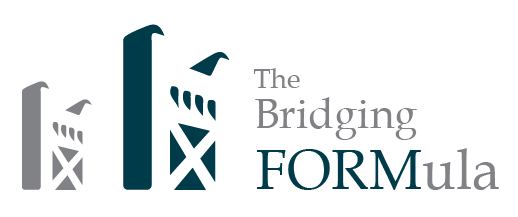Americans are notoriously skittish about handling end-of-life financial needs, which is understandable given the taboo nature of dealing with one's own eventual demise.
The data bear that anxiety out. A 2015 study from Everplans reveals that 69% of Americans say they have seriously considered writing a will, yet only 34% follow through on that process. Another 95% say they don't plan well for the handling of their estates due to lack of knowledge and lack of good financial tools.
Yet only a cursory look at the estate planning landscape reveals that "lack of information" excuse is just that - an excuse. The truth is, there are plenty of options for people looking to create an estate plan properly. By and large, there is no shortage of attorneys, financial planners and accountants who specialize in estate planning - a quick internet search will find you one, either live and in the flesh or via a digital estate planning platform (sites like Avvo.com and EstatePlannng.com are a great place to start - both have "find an estate planner" tools.)
When you do find a good financial or estate planner, the ground you cover becomes paramount. There are several "must have" estate planning components you'll need, along with a few creative components that really complement a good estate planning campaign.
The best idea of estate planning is to first accept that you will need to do this type of planning, its necessity and its urgency, notes Chris Cooper, founder of Chris Cooper & Company, a financial services firm in San Diego. First, Cooper says, decide who you can trust to take care of you and your estate, and it may not be your spouse or your children. "Not everyone's kids are best suited for this task," he says. Next, select a well-recommended estate planning attorney, and not a general practice type, as estate planning is a specialist's game. "For example, you select a surgeon on how many times he or she has performed an operation, and the same holds with attorneys," Cooper adds. Also, don't appoint co-trustees. "That just guarantees conflict," he says.
With the ever-changing estate tax laws and increasing estate tax exemption, flexibility is becoming more key in estate planning documents, says Steve Martin, an estate planning specialist with Oasis Wealth Planning Advisors, LLC, in Nashville. "While it's wise to sit down with your estate planning attorney and financial planner when significant changes happen in your life, have flexibility written into your estate planning documents that account for future changes in tax laws," he says. Martin cites "disclaimer planning" as one such technique. "This basically allows the surviving spouse - within a certain period of the decedent spouse's death - to decide whether a certain amount of assets pass into a testamentary trust -- e.g., estate tax savings -- or pass outright to the surviving spouse," he says. "Providing this flexibility could allow the couple to avoid several trips to the attorney's office while giving them the ability to minimize estate taxes should the situation warrant."
Larry Solomon, director of financial planning and investments at OptiFour Integrated Wealth Management, in McLean, Va., says a common estate planning mistake is establishing a revocable living trust without actually funding it.
"A living trust is the best way to provide the mechanism for someone else to manage your financial affairs when you die or lose capacity," Solomon says. "However, frequently people establish revocable living trusts, sign the trust documents, but then fail to take the next steps and actually fund the trust with the appropriate assets," he adds. "This means retitling investments, bank accounts, and other financial assets from individual or joint accounts into the trust and transferring the deeds for real estate and other real property into the trust also." That can be a challenge and may require professional assistance to reregister financial accounts and get new deeds for real estate with the trust listed owner, he adds. "But it's imperative if you want the living trust to function properly and serve its intended purpose," Solomon notes. "I can't tell you how many times we see trusts that are not correctly funded, often after someone dies or loses capacity. By then, it's too late to fix."
If you need a death benefit to replace your income or protect your family if you die prematurely, make sure you buy death insurance and don't let someone sell you life insurance, Solomon adds. By death insurance, Solomon means simple, low-cost term life coverage that provides a sufficient death benefit without bells, whistles or cash value. "The purpose of the insurance should be to manage the risk of one's dying prematurely for a defined period of time and that's it," he says. "Cash value life insurance like whole life or variable life is vastly more expensive and it's a huge waste of time and money for 99% of the population that needs life insurance."
Victor Medina, founder of Medina Law Group in Pennington, N.J., says that while everyone should have a power of attorney, "the only time you figure out whether it's any good is when you actually use it." For most people, that time is when they're already incapacitated and when it's too late to sign a new one, he adds. "So, we recommend that clients try out their power of attorney while they're still healthy to see whether it would be accepted by the financial institution, as each financial institution will apply a different test to a power attorney to determine validity."
If you don't have an estate plan, and you're a head of household with dependents counting on you, it's time to get one. Start with the tips above, and make sure you're working with a trusted estate planning professional.
Back to Articles